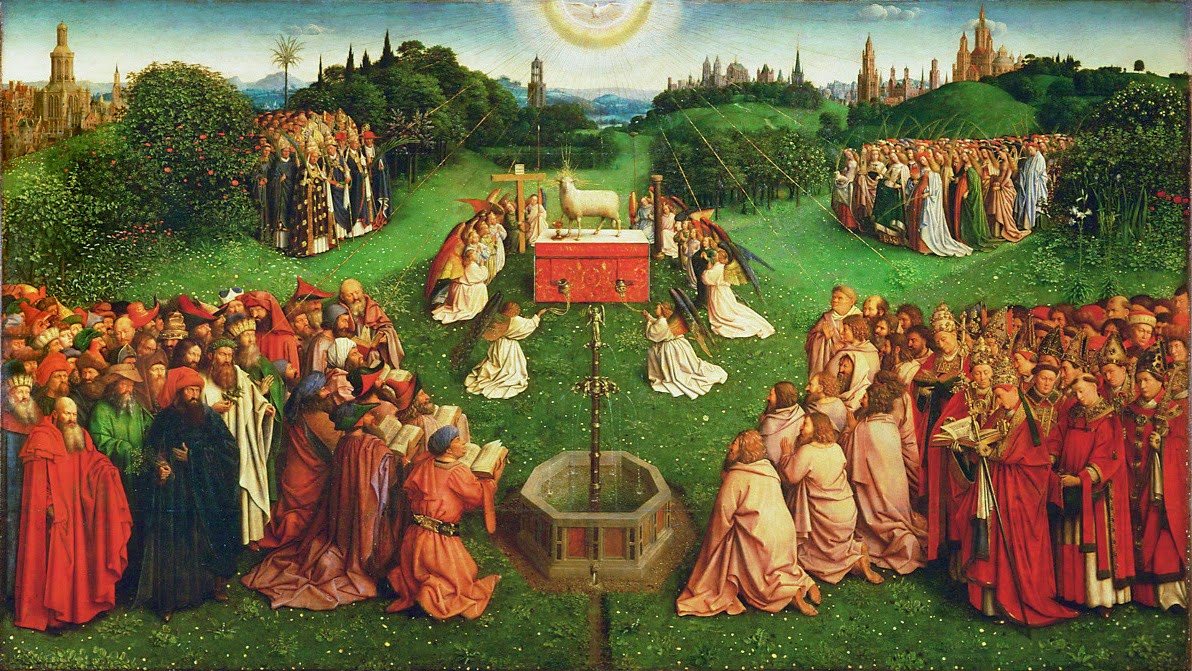The Supper at Emmaus, c. 1637 Matthias Stom
When I was in the fifth grade, my classmates and I had the chance to learn about the Jewish seder meal at the synagogue just down the street from our Catholic school. That particular year Passover fell very close to Easter, and so as we were getting ready to celebrate the Resurrection, our teachers thought it would be good for us to learn what our Jewish neighbors were preparing for. We met with the rabbi of the temple who told us all about the story of God bringing the Israelites out of slavery in Egypt, and about how Jews remember this event every year, at the Passover seder meal.
I remember well one particular thing the rabbi said to us. He said that for Jewish people, the Passover meal isn’t just a normal meal, just a normal way of remembering something that happened long ago – instead, it’s as if they are really back in Egypt and going through the Passover for the first time. He said, “We know of course that this all happened long ago – but inside, it’s as if we’re back in Egypt, three millennia ago, going through it for the first time.”
That insight has always stayed with me – that Jews celebrate Passover as not just a remembrance of things long ago but a way of those things becoming really present again. But that way of thinking is not just unique to them – we Catholics also think in this way, not about the Passover, but about the Eucharist.
The Mass of the Lord’s Supper, which we celebrate each year on Holy Thursday, emphasizes in a special way those events that are actually present to us at every Mass throughout the year. On the night before he suffered and died, Jesus shared with his disciples the Passover meal, what we call the Last Supper. In that meal, he gave his disciples a way of sharing in, of being present already in what was about to happen to him on Good Friday. You and I, when we recall the Last Supper at every Mass, when we hear again the words Jesus said to his apostles – we too are not just recalling it as something that happened long ago. In fact, mysteriously we are made present again at that event – not to the Last Supper but rather to his suffering and death on Calvary. In short, in every Mass, through the Eucharist, it’s as if you and I are not here in Fort Smith in 2015 but rather at the foot of the Cross at the death of our Lord.
The Last Supper must have been an extraordinary event. So many things occurred that resonate with what we believe. Jesus washed the feet of his disciples as a sign of the humility and service that he asks all believers to embody for one another; he gave to the apostles the power to forgive sins and prayed to the Father for their unity in leading his Church; and most importantly he said “This is my body, which will be given up for you” and “This is my blood, the blood of the new and eternal covenant, which will be poured out for you.” He wanted his disciples – the twelve apostles gathered in the Upper Room, and you and I today – to have a way of always being in touch with, always being able to share in the saving mystery of his Passion.
At every Mass, we are put in touch again with a great event – not just being saved from slavery in Egypt but being saved from sin and death by the Lord’s Cross. In every Eucharist, what we receive is not a symbol of past events, but the real event, the Real Person – Christ himself Really Present in his Body, Blood, Soul and Divinity.
In a few moments, I will remove my chasuble and following the example of Christ, will wash the feet of 12 individuals of our community. I will do so as a symbol of my service to you, indeed of the service that Jesus asks all of us as his disciples to perform on the part of one another. But even more important than having our feet washed with water, Christ has washed the souls of all of us with the blood he shed on the Cross – that is truly the mystery of service that he invites us to share in, “to do this” in memory of him.
Ten years ago today, now St. Pope John Paul II passed into eternal life. The Eucharist was at the heart of his life. He once wrote: “Only through the Eucharist is it possible to live the heroic virtues of Christianity: charity, to the point of forgiving one's enemies; love for those who make us suffer; chastity in every age and situation of life; patience in suffering and when one is shocked by the silence of God in the tragedies of history or of one's own personal existence. To be authentic Christians, you and I must be Eucharistic souls.”
My friends, as we prepare to adore the Lord in the coming days in the mystery of his Passion, death, and Resurrection, may we never be too distant from adoring him in the Most Blessed Sacrament, which puts us in touch with those mysteries, which puts us indeed in communion with his very self.





_-_interior%2C_The_Lady_Chapel%2C_mural%2C_The_Exaltation_of_the_Holy_Cross_by_Luigi_Gregori%2C_looking_straight_up-001.jpg)




